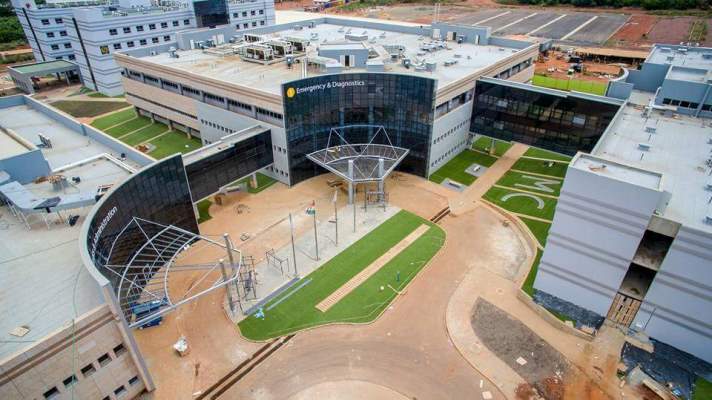A former Minister of Health under the Mahama administration, Alex Segbefia, has stated that the University of Ghana had from the onset, been tasked to handle the management of the $217m Medical Centre.
According to Mr. Segbefia, the second phase of the project, which was expected to cost about 48 million dollars would be paid for by the University after an agreement was reached for the institution to guarantee the loan.
This, he said, meant that the University would be responsible for the payment of the loan for that phase of the project, and handle the running costs of the hospital after five years.
“The whole idea of this project was that there was a phase 2, which at the time, was going to cost us $48 million. That was a loan that had to be guaranteed by the University of Ghana. By so doing, it meant that when the loan is taken out, the University of Ghana would be responsible for making the payments on the $50 million, not the $217 million. That is why it was important that they had management control. The whole hospital’s running costs was going to be dealt with by government for only five years. After that the running costs plus the $50 million had to be paid for by the running of the hospital,” he said on Point Blank on Eyewitness News.
“It became imperative that Legon, that was meant to guarantee that loan was to be involved in the management of the hospital. From Day 1, it was crafted in the manner in which Legon would have some level of management control and Board of Director control of the hospital.”
The ongoing tussle between the University and the Ministry of Health over the management of the facility, has been suggested as the reason it remains idle despite being commissioned in 2016 by the President John Dramani Mahama.
Despite the initial assurance that a concrete announcement on the resolution of the impasse would be made at the end of last week, the two parties have been unable to reach a compromise.
However, Alex Segbefia stated that, while the University of Ghana would run the facility, the Health Ministry would still be involved as was the case with the Christian Health Association of Ghana (CHAG) hospitals.
According to him, the only uncertainty over the management of the hospital’s facilities was in relation to the training suites which was expected to be resolved after discussions between the two stakeholders.
“I believe the [debate] over the management is a non-starter. There was always going to be Ministry of Health involvement because of the recruitment of staff, because of the people who have already been trained, we sent people to Israel for training. That was already on the cards. The Ministry of Health is not in charge of the CHAG hospitals, but we are involved in their staffing and the recruitment of staff, and we have a good liaison with them. This would have been no different. There was also a question mark as to whether we would leave the training suites with Legon on its own or to be co-managed with the Ministry of Health to ensure that we had training facilities right across the country, not just for those Legon wanted to put through training because we saw it as a national asset as well,” he said.
“The only question of complete management was with the training suites. Other than that, it was meant to be run by Legon. They would have full control at a certain point. Whether or not Legon took the decision to go with some advice as to whether they wanted to draw in expertise management to assist or not, was a matter that Legon was going to debate with the Ministry of Health. But the whole idea was that Legon was going to manage it.”
Background
The UG Medical Centre, which had its first phase completed was ready to commence operations after being inaugurated by former President John Mahama in after completion in November 2016.
The facility has been idle since the commissioning of its first phase in January 2017, because authorities of the University are at odds with the Health Ministry on who should manage the facility.

Whereas the University believes processes leading to the construction of the facility gives it a direct oversight role of the Medical Centre, the current Ministry of Health under the Akufo-Addo government thinks otherwise.
A Deputy Minister of Health, Kingsley Aboagye Gyedu, had earlier said government currently needed about $6 million to make the facility operational, and an additional $50 million to complete the phase two of the project.
In 2012, the government signed a contract with Messrs. Engineering and Development Consultant (EDC) of Israel to build the first phase of the facility.
The University of Legon designated 400 acres of land for the entire project. About 800 personnel were said to be needed to get the facility fully operational.
There’s currently an ongoing meeting between government and the University management as well as other stakeholders on the way forward.
Blame NDC for non-functional CHPS compounds – Segbefia
Also speaking on the state of non-functional CHPS compounds in the country, Alex Segbefia conceded that the previous National Democratic Congress (NDC) administration should be held responsible for some of the abandoned facilities.
According to him, a major reason for the sad state of affairs, was the lack of accommodation for staff.
Source: Citifmonline


Comments are closed.